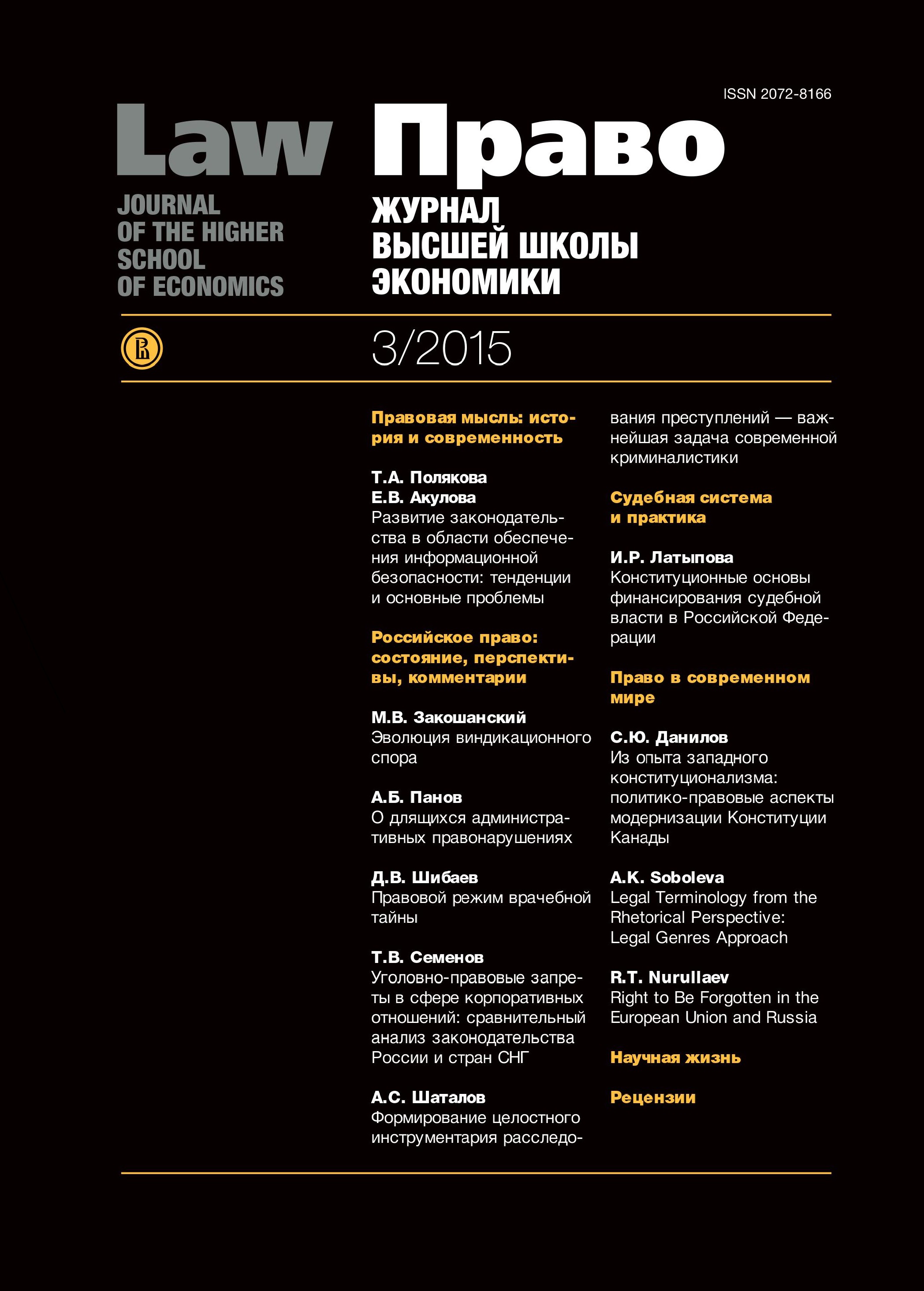Очередность удовлетворения требований «предшествующих» кредиторов в рамках процедуры судебной ликвидации во Франции
Аннотация
Одним из наиболее проблемных аспектов процедуры банкротства является справедливое распределение стоимости активов должника между кредиторами на стадии ликвидации должника. Особенно сложным этот вопрос становится для иностранных кредиторов, которые зачастую не имеют достаточных знаний о правовом регулировании банкротства за рубежом. В связи с этим представляется актуальным вопрос об очередности удовлетворения требований кредиторов в зарубежных правопорядках. В настоящей статье проводится анализ законодательства и судебной практики Франции о порядке удовлетворения требований «предшествующих» кредиторов. В настоящее время в этой отрасли права проведен ряд реформ, которые должны быть подробным образом проанализированы. В данном исследовании автор описывает существующие различия между «предшествующими» и «последующими» кредиторами, а также рассматривает условия признания отдельных требований привилегированными для целей распределения имущества должника. Далее автор детально исследует установленную законодателем очередность удовлетворения требований «предшествующих» кредиторов в зависимости от того, стоимость какого имущества (движимого или недвижимого) распределяется. Наконец, в статье представлены способы, позволяющие кредиторам получить удовлетворение своих требований за рамками установленной законом очередности, т.е. в преимущественном порядке. На основе проведенного исследования автор делает вывод об экономической составляющей правового регулирования банкротства во Франции. Вводя те или иные институты, законодатель может регулировать (стимулировать или подавлять) активность определенных хозяйствующих субъектов. При этом, поскольку на стадии ликвидации целью проведения процедуры банкротства является преимущественно справедливое распределение стоимости имущества должника между кредиторами, установленная очередность удовлетворения их требований представляет собой существенную характеристику данной отрасли права конкретного государства. Результаты исследования и выводы могут быть использованы как практикующими юристами для целей определения положения конкретного требования к должнику, так и научными исследователями при изучении различных подходов к определению понятия и правового режима «предшествующих» требований.


















